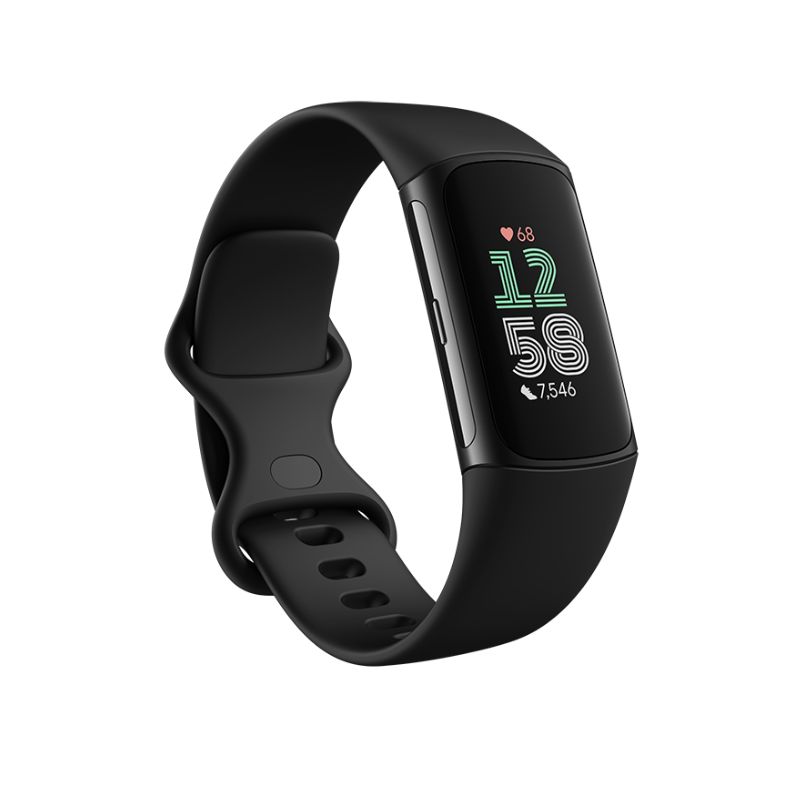The only exercise I do is walking - is that enough? Doctors reveal all you need to know
Walking for at least 10 minutes a day has benefits for the mind and body - but is walking enough exercise on it's own? We asked the experts to say once and for all

There's no shortage of advice on how to exercise for a long and healthy life - Pilates, yoga, strength training, cold-water swimming - the list goes on. But given that most of us are juggling work, family, and other responsibilities, sometimes all we can manage is a walk. Is it enough exercise?
The good news is, many doctors and personal trainers think that pulling your walking shoes and heading out for a walk is one of the most underrated forms of exercise. It can be a spot of walking yoga or a walking workout, every little helps. "It’s low impact, accessible, and extremely easy to fit into your daily routine, and it offers both physical and mental health benefits," says PT Anya Russell, who works predominantly with women going through perimenopause.
If going to a gym or exercise class is out of your comfort zone, or you're looking for a way to incorporate fitness into your daily life, walking could be a great addition to your daily routine. But is regular walking enough on it's own? Or do we need to do something which raises our heart rate even more? Here, woman&home speaks to doctors, personal trainers, and women's health experts to reveal what the doctors recommend for each health goal - and the best ways to level up your walking for even more health benefits.
Is walking enough exercise?
1. To keep fit
When we talk about keeping fit, we mean making sure the body can function effectively through daily life and carry out all the tasks you need to do. Walking is a type of cardiovascular exercise, so it puts healthy pressure on the heart, arteries, veins, and capillaries, improving stamina and endurance.
"Walking causes the heart to pump faster and stronger and as a result, the blood which is rich in oxygen, moves more effectively around the body, reaching organs and tissues," says Dr Jane Glazebrook, who is also a certified personal trainer and works with The Slimming Clinic.
While walking might not get your heart rate up as much as running, spinning, or other sports, it is a moderate-aerobic activity that can help you stay fit and healthy if you do it regularly and at a brisk pace (at least three miles an hour), she says. That means meeting NHS-recommended guidelines of 150 minutes of exercise (walking in this case) per week, either done by walking every day for 21 minutes or walking a few times a week, at a pace where you're working hard but still able to maintain a conversation.
Is walking enough exercise? Yes, but keep it brisk.
Sign up to our free daily email for the latest royal and entertainment news, interesting opinion, expert advice on styling and beauty trends, and no-nonsense guides to the health and wellness questions you want answered.

Dr Jane Glazebrook is a doctor and personal trainer who works for The Slimming Clinic which is a doctor-led personal weight loss organisation.
2. To lose weight
If you're looking to lose weight, walking is one of the best exercises to do. It burns calories while increasing your energy levels and helping you preserve lean muscle mass, which is needed to burn more calories when you're not exercising. It's also lighter on the joints than some other cardio workouts, like running.
However, as beneficial as walking for weight loss is, there's more to losing weight than how many steps you take. There's no point in walking for miles and miles if your diet doesn't reflect your goals, warns nutritional therapist Laura Southern. “If the basics of a diet aren't there walking might not be enough, or too challenging,” she explains.
To start with, you need to be in a calorie deficit for weight loss. This involves burning more calories than you eat every day and as walking for just 10 minutes a day helps burn calories without getting your heart rate up so high you feel hungry, it can be a real winner for getting into this deficit.
The other way to get into a calorie deficit is to eat fewer calories than you burn every day. If you go down this route, it's essential to prioritise foods with certain macronutrients in them, says Southern. “Fibre, essential fats, polyphenols and protein are all important elements of a diet to support long-term health and weight loss."
Is walking enough exercise? No - you'll need to change your diet too to get into a calorie deficit - but walking is very helpful for burning calories, improving motivation, and preserving lean muscle mass.
3. To maintain muscle and bone mass
In a perfect world, you'd combine regular walks with strength training in perimenopause to combat the natural loss of bone and muscle mass that comes with declining oestrogen levels. However, if walking is all you can manage for the moment, it's a great start.
"Osteopenia (reduced bone density) and osteoporosis (reduced bone mass and deterioration of bone tissue) make the bones brittle and more susceptible to fractures. Weaknesses in bones and muscles also cause frailty and because of this, the likelihood of falling increases. This can then lead to life-changing fractures. But having strong and healthy bones can significantly reduce the risk of fractures, particularly in the hips, spine, and wrists," says Yasmin Palfrey, a specialised physiotherapist working in musculoskeletal care.
As walking is a weight-bearing exercise, it requires the muscles and bones to work against gravity. "Walking will also help you with balance, posture and coordination, reducing your risk of falls, as you engage various muscle groups in the legs, hips, and lower back. Stronger muscles will provide better support and bone protection," she says.
But for walking to be enough exercise to maintain bone and muscle density, personal trainer Emma Simmarro, founder of Building Body Confidence warns that the walk needs to be a brisk one. "The important part is to get the right intensity, we shouldn't be pootling along! A brisk walk should get your heart rate up and leave you feeling out of breath; you shouldn't be able to sing while you do it. Walk with a purpose by using your upper body to generate power and turn your walk into a full-body workout," she says.
Wearing a weighted vest for walking or pulling on a pair of ankle weights for walking can help add some extra resistance, making your steps harder as you work to move against gravity.
Is walking enough exercise? Yes, but you should add some strength training to your routine too if you can.

Yasmin Palfrey is a Specialised Musculoskeletal Physiotherapist and Health Coach. Yasmin is passionate about sharing her knowledge and injury recovery tips online to help as many people as possible. She is a keen runner and enjoys treating running injuries and helping everyone from the elderly to the athlete, build strong and functional bodies free from pain and injury.
Strength training on the move

Wearing a weighted vest while you walk can add some extra resistance, making your regular stroll harder - and boosting the strength in your legs and core. This vest goes up to an impressive 30kg (although I'd recommend starting with 5kg or less) and has removable sandbags for a versatile fit.

Ankle or wrist weights are another great option to add some resistance to your daily walks. The Opti ankle weights range from 0.5kg to 1.5kg, offering an option for everyone, and are made from soft synthetic materials with sand weights so they are comfortable and versatile to wear on different parts of the body.

Time your walking workouts, set your pace, and record your distance with a fitness tracker. The Fitbit Charge 6 is the recommendation of Health Editor Grace Walsh: "It's so easy to use and you can start a workout in just a few swipes of a finger on the touchscreen. The GPS is spot-on and it even has Bluetooth connectivity to many treadmills. Plus, it's more affordable than other smartwatches on the market."
4. To boost balance and flexibility
It's fair to say that yoga, Pilates, and mat-based stretching will be more effective for helping to improve flexibility and balance than walking, but it's a good option if you can walk on uneven terrain that challenges your centre of gravity, says Lotti Sorrell, a certified personal trainer and founder of Longevity Fitness.
Palfrey agrees: "This could be walking on pavement instead of the treadmill or getting out in the country for muddy paths and grass," she says.
Sorrell says she would "recommend including balance drills that can be done along your walk" as well. "For instance, stopping and standing on leg for a minute on each side. If this is too easy, add some pulses in at the knee while you do this or try the same thing, but keep your eyes closed," she says. "I'd also suggest a specific mobility routine that can be done regularly to address any movement imbalances."
Is walking enough exercise? You need to challenge yourself to make it work. Better to combine walking with stretching, yoga, or Pilates to see major benefits.

Lotti Sorrell is the founder and head trainer at Longevity, a fitness company helping people to move better forever. She is a movement coach and CIMSPA registered personal trainer working with top clients around London.
5. For reducing the risk of disease
It's been well established over the years that exercise, whether it's power walking or swimming, has a direct effect on the risk of adverse health events, such as strokes, heart attacks in women, type 2 diabetes, and even some types of cancer. "It can even lower the risk of death by up to 30%, says Dr Nabeel Arshad, a GP at the Brooke Surgery.
If you're looking to reap the cardiovascular benefits of walking, you need to walk for at least 30 minutes a day, according to recent studies. The research by the University of Limerick found that walking 30 minutes a day, 5 days a week was associated with a 19% reduction in the risk of coronary heart disease, which is what causes events like heart attacks.
Is walking enough exercise? Yes! Many people will see major benefits walking for at least half an hour every day.
Can walking be my only exercise?
So, if all you do is walk for exercise, is it enough? There are certainly plenty of benefits to walking but the experts all agree that a varied exercise program is best. PT Sorrell says it best: “I love to think of exercise much like you would think of diet - if walking is green vegetables, then yes, generally they’re healthy but they are just one part of a varied diet that gives the body everything it needs. Strength, mobility and balance training are also important and shouldn’t be overlooked.”
Walking is a great form of exercise, says Dr Glazebrook. "It's low impact, so there's less stress on the joints and back. It counts as moderate-intensity aerobic exercise [provided you move briskly] so it benefits our cardiovascular and respiratory systems. It helps to preserve lean muscle mass,and it can improve your mood."
However, some types of exercise offers the body benefits that regular walking can't match. "Strength training breaks down muscle tissue and helps build bone in a way that walking alone doesn't, but together they make a powerful combination for our health and fitness," says Palfrey. "Our bodies are changing as we age, but regular walking and resistance training is a winning formula that will help us stay one step ahead, excuse the pun."

Walking can be enough exercise to see health benefits if you walk at a brisk pace.
How much walking per day is enough exercise?
To see the benefits of walking, you'll need to walk briskly for at least 10 minutes constantly - so that's without taking a break - every day.
There’s much debate over whether walking 10,000 steps a day is enough to improve and maintain fitness. The people who are the least physically active will naturally see the most benefits of aiming for this daily target - but it's actually an arbitrary number thought up by marketing specialists in Japan in the 1960s. Only after the campaign, which was used to sell pedometers, was research done to figure out whether this number offered any significant health benefits.
Newer research, summarised in a review led by Pennington Biomedical Research Center, suggests that anywhere between 4,000 and 18,000 steps a day has positive benefits. However, it's not so much the number of steps you do but how you feel doing them - if you're achieving this number of steps simply by commuting or walking around the house, it might be enough to get moving but your heart rate isn't likely to be varied enough to increase your overall fitness levels.
For walking to be enough exercise, it needs to be brisk. "You can tell you're walking briskly if you can still talk but cannot sing the words to a song," says NHS advice.
This is also why doing workouts such as swimming, Pilates and yoga can be beneficial as you might find it's easier to get your heart rate up in these types of workouts.
Tips to improve your walking
- Increase your pace: If you want to improve your stamina, PT Anya Russell recommends increasing the pace of your walk. The best way to track how fast you're going is with a pick of the best fitness trackers - but you could also time your usual route and try to do it a little quicker every time. A pace of around 4 mph will raise your heart rate and put you into the fat-burning zone if that’s your goal.
- Go for longer: As with most types of exercise, the longer you do it for, the harder your body will work. If you don’t have time to walk for 45 minutes every day, you can schedule a mixture of short and long walks over a week, aiming for the recommended 150 minutes in total. Starting with an early morning walk is a great way to begin the day and get your steps in early.
- Wear a weighted vest: Wearing a weighted vest is a type of strength training as it offers resistance against your body on the move. It's a great way to get in a lighter form of strength training while you're walking around the house or running errands. A 10-minute brisk walk with a weighted vest will be an incredible leg workout and you'll feel it even after you've taken the vest off, the experts say.
- Add inclines or hills: Adding inclines on the treadmill or hills on your outdoor route is a good idea to get your blood pumping. Walking up and down stairs or on a step machine, perhaps with some dumbbells, can also increase stamina and strength in your legs and glutes.
- Intervals: Interval training is when you work at a set intensity for about 30 or 40 seconds up to a few minutes, and then make it easier or harder on yourself by changing the intensity. This kind of training can work well with walking too. Russell suggests: ”Incorporate intervals into your walks, for example, 2 minutes fast walking, 2 minutes normal pace.” If you can keep this up for 20 minutes, or more, you will feel like you’ve had a more intense workout than if you were walking at an even pace.

Kat Storr has been a digital journalist for over 15 years after starting her career at Sky News, where she covered everything from world events to royal babies and celebrity deaths. After going freelance eight years ago, she now focuses on women's health and fitness content, writing across a range of UK publications.
From perimenopause to the latest fitness trends, Kat loves researching and writing about it all. She's happy to give any fitness challenge a go and speaks to experts about wellbeing issues affecting people every day.
